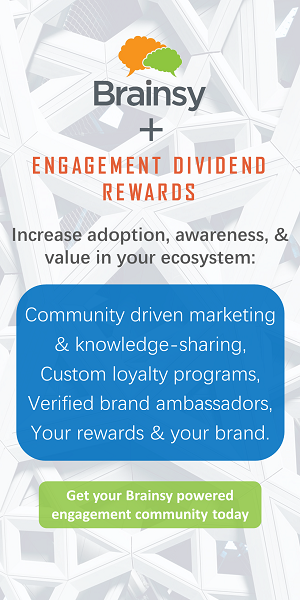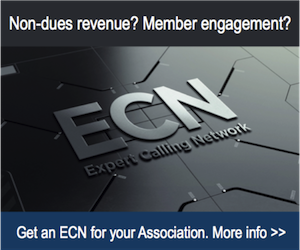- Home
- Contributors
- Featured
- Brad Holden
Brad Holden
@Holden
Principal
TomorrowVentures
Principal @ TomorrowVentures, an early stage VC fund with over 80 investments including Prosper, Legendary Entertainment & Maker Studios.
Tags
TomorrowVentures Venture Capitalist Principal Georgetown University Middlebury College Early Stage Investor
Biography
Brad Holden is a principal with TomorrowVentures, an early-stage venture fund founded in 2009 by Court Coursey and Eric Schmidt, Alphabet’s Executive Chairman. TomorrowVentures has 80 investments in 21 cities around the world that range from consumer internet technology to digital media and gaming to specialty finance. Investments include Legendary Entertainment, Maker Studios, Prosper, Beautycounter, Shape Security and Sharecare. Since 2010, Brad has worked closely with the existing portfolio companies, sourced and closed new investments and coordinated the legal process for TomorrowVentures. He has helped grow the portfolio from 5 investments to 80 during his time at TomorrowVentures. Prior to joining TomorrowVentures, Brad was a corporate associate in the Palo Alto office of Wilson Sonsini Goodrich & Rosati. His practice involved representing publicly and privately held companies and venture capital funds in a broad range of corporate and transactional matters, including mergers and acquisitions, public and private placement of securities, securities regulation, and general corporate governance.
He received his law degree magna cum laude from Georgetown University Law Center where he was a member of the Order of the Coif and received his B.A. in International Politics & Economics from Middlebury College.
Overall, it is still early in the development of blockchain platforms and, for the most part, they have not achieved widespread adoption by consumers in any meaningful sense. That being said, I think Bitcoin has clearly won the "store of value" use case and I think the implementation of lightning gives it some more transactional/development promise. I think ETH has most of the developer mindshare which is always a good indication of future promise. EOS just launched and clearly has the money to attract developers ($4.1B) but we shall see where it goes. On the lesser known front, I love the team at 0x (ZRX) and am bullish on privacy coins like Monero (XMR) and Zcash (ZEC). I also think Augur (REP) has a ton of potential and a strong team.
Yes. We have looked at many and I personally own a decent amount of bitcoin. I'm very bullish on the long term applications of the blockchain but we haven't found the right application or business to back yet. That being said, we passed on Coinbase right after YC demo day, so that was clearly a mistake
I think crowdfunding platforms, especially Angelist, will help democratize access to startups but they will never fully replace VCs. I think venture investors can generally add a lot of value to the companies in which they invest but capital is increasingly becoming a commodity and VCs need to be able to differentiate what they offer a company. I think crowdfunding is especially great for consumer products (specifically hardware) as they allow company to prove they have demand for a product and get capital pre-production. That being said, most companies don’t use it effectively and most kickstarter campaigns don’t deliver their rewards/products on time. The best companies that I have seen like Doppler Labs (Here Active Listening), Electric Objects, and Eero leverage a combination of VC cash and crowdfunding to prove demand and still deliver a great product to early adopters on time.
The best way to get a job at a VC is to work a great company in which that VC invested. Most VC's now prioritize operating experience as a required qualification for hiring partners. That being said, there are other ways to break into the business. Angelist is a great platform where, if you have the capital, you can even invest $1,000 per company in syndicates to prove that you have a good sense for what makes a successful investment
Will Silicon Valley invest outside of the Bay area?
i am based in the Tampa area but used to work for a high flying startup that was backed by some venture folks in Menlo Park (where the company was headquartered). the founders used to say that they loved being in Silicon Valley because there were so many vcs there and that most vcs would only invest in companies that were less than 50 miles away because they wanted to check in...Do you guys have that same philosophy? Is there any hope for people like me that live in places like Tampa to find interest from Silicon Valley?
Unfortunately, many VCs will not invest outside of their backyard but I believe that is changing. 75% of our investments are outside the Bay Area and we fundamentally believe that, with today's technology, you can start a great company anywhere. There is easier access to talent and funding in the Bay Area but that doesn't mean you can't build a great company outside of here. So, yes, there is definitely hope for you. If you build a great company, investors will come to you
FCC & settop box vc opportunities
Hi Brad - I'm in the telecom industry and there has been a lot of news about the opening up of stbs by the FCC. It looks like a dog fight between Google and the cable industry but I was wondering whether VCs would see this as an opportunity for new providers of stbs and/or content providers?
In short, yes. I think this is a huge opportunity that will play out over the next 5-10 years. I met with a company attempting to create a new residential broadband provider by leveraging commodity hardware (like Raspberry Pi). I think the days of Comcast Triple Play (bundling phone, broadband and cable) are numbered and the cable providers are come under increasing pressure from all sides but especially on the content side from “cord-cutting” There are so many places to get create content. Our two biggest exits to date are from opposite ends of the content spectrum. Legendary Pictures makes big budget fanboy movies like Dark Knight and Maker Studios was one of the first MCN to help YouTubers succeed. Disney bought Maker for $500M+ and Dalian Wanda bought Legendary for $3.5B. So we are very bullish on content creation and distribution channels via unbundling.
I think there is definitely a pull back but I would hesitate to call it a bubble bursting. I prefer to think it is a return to normalcy. The hyper growth and increasingly large rounds for private companies at sky-high valuations were unsustainable in the public market. I think the gap between private and public market valuations is decreasing and that is a good thing. Some companies, even most companies fail, and that is healthy for the ecosystem.
TV is known for investing in early-stage companies. I’m curious whether you have heard about or have read Adam Grant’s new book, “Originals,” and to get your thoughts on his theory that the best entrepreneurs are more likely to be risk-adverse as opposed to risk-takers—i.e. that
Add any details here (recommended)
I actually have that queued up in my kindle but haven’t read it yet. My wife and I are expecting twins soon, so I am reading a lot of parenting/twin books. I think fundamentally what we look for in an entrepreneur is someone who has a burning desire to see what they are building exist in the world. Mission driven (I define mission broadly here) founders are going to the most sucessful because they will be able to more effectively recruit and sell people on their vision and that desire/drive will allow them to perservere through the ups and downs of building a company. We want someone who has a unique insight and can help me answer the question why are you the best person or team to help execute on that vision/insight i.e. what about your background/domain expertise led you to that insight? What do you see that no one else sees and why is now the right time to build this company?
I think Fin-tech is a really broadly defined space but there tons of opportunities being created by the “unbundling of banks.” Today’s technology allows new companies to cost-effectively do things that many of the current banks can’t do, like Prosper lending $7000 to someone. That being said, many entrepreneurs underestimate the regulatory hurdles in fin-tech and healthcare and fail to realize that not everyone who is a regulator or banker is an idiot. Some things are they way they are for a good reason but a lot are not.
I think there a lot of different definitions of impact investing. We fundamentally believe that the best way to have an impact or change the world is to build a sustainable business whether it be for-profit or non-profit. We are investors in Prosper, Mozido and Remitly which are all fin-tech and I believe impactful. Prosper provides people access to debt capital that can’t be serviced by banks, Mozido provides mobile wallet services to under banked and Remitly allows people to cost-effectively send money home to their relatives.


